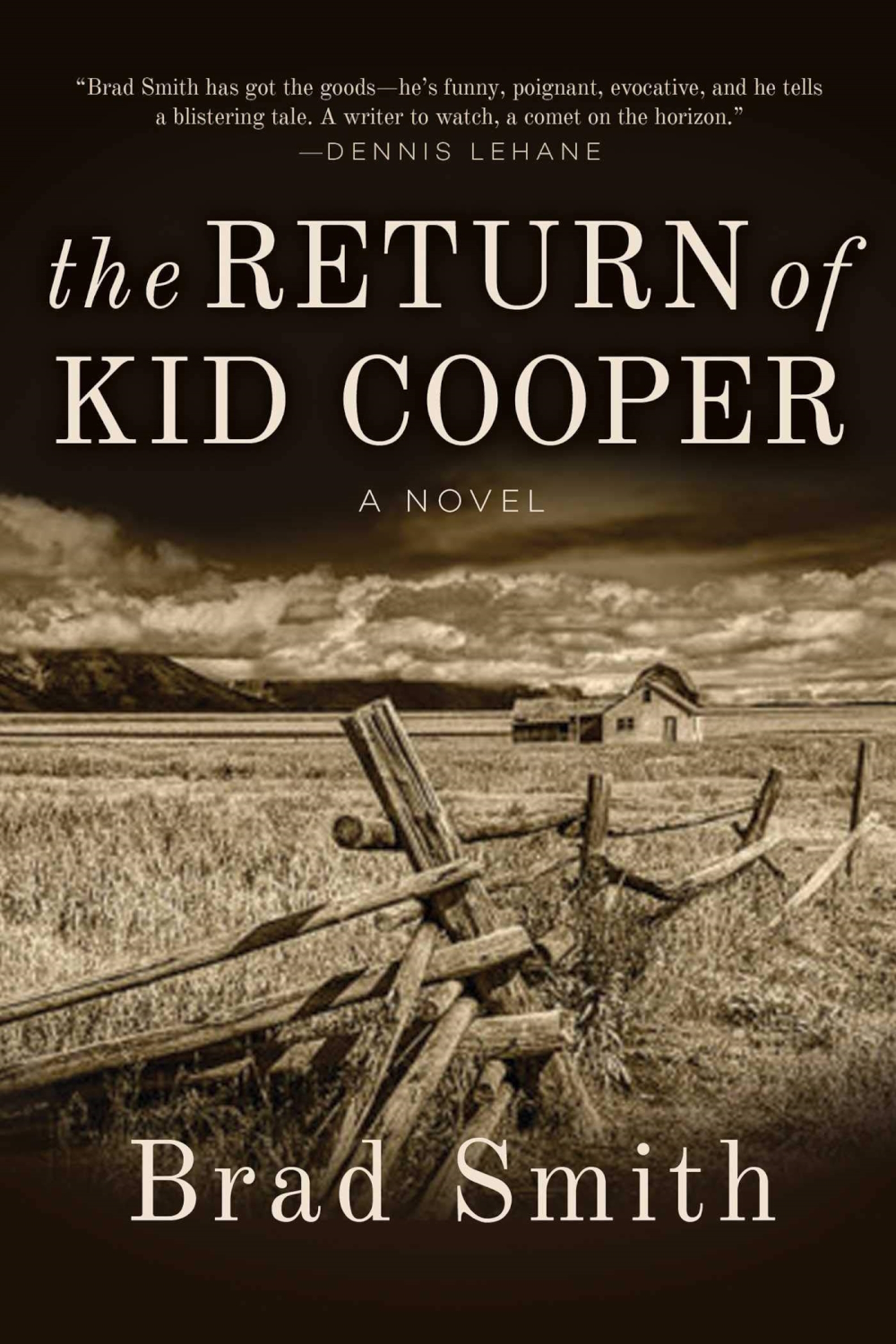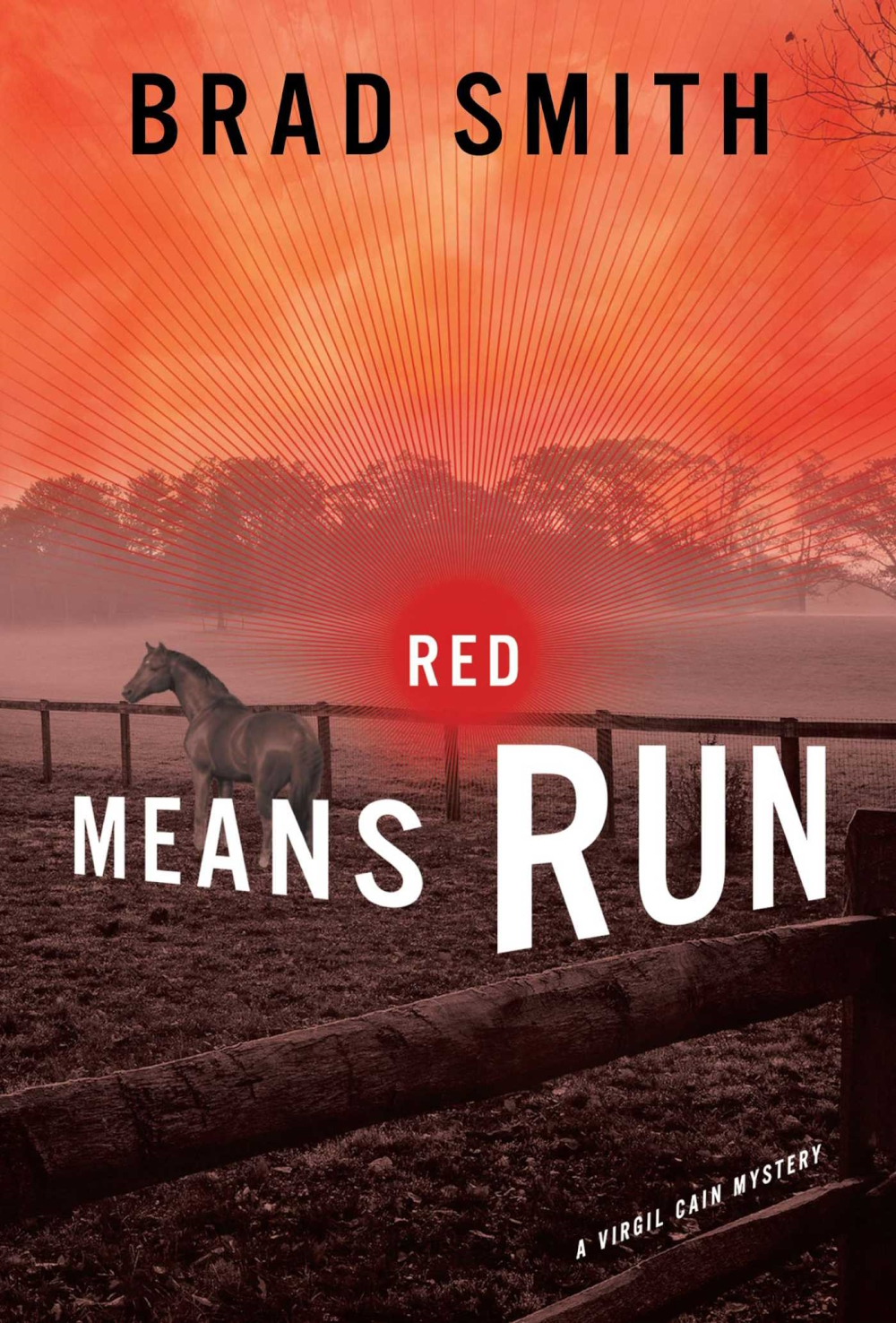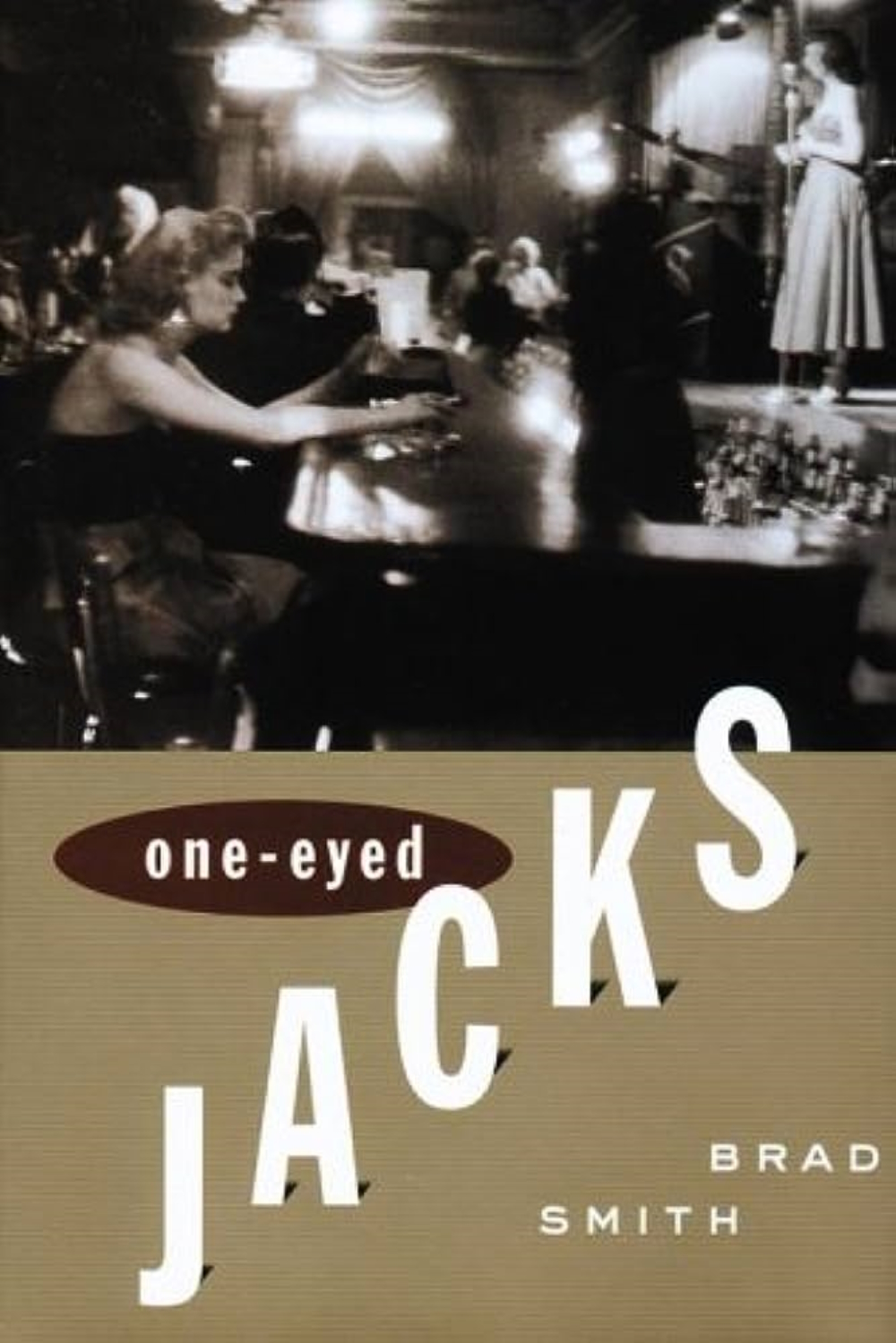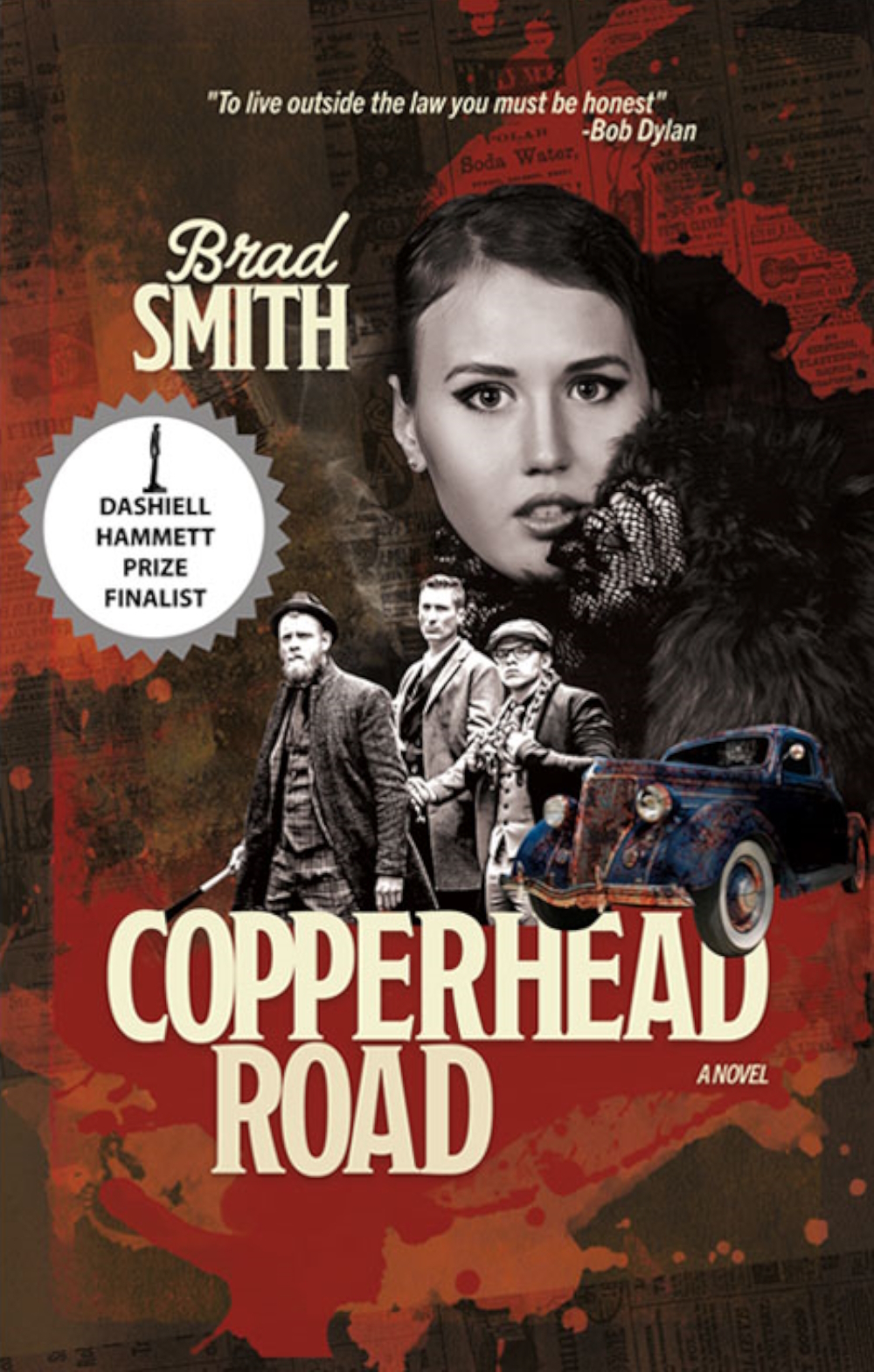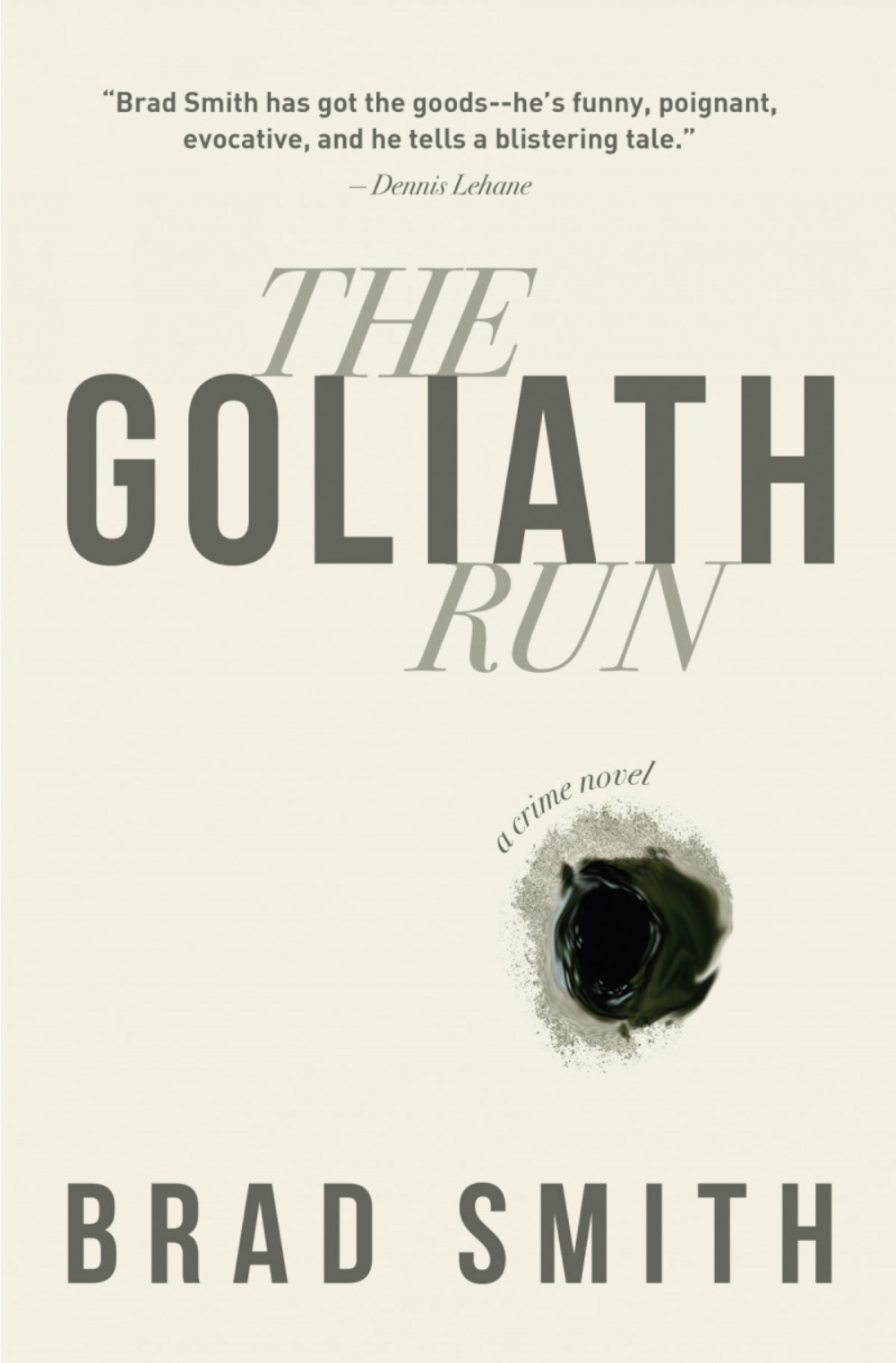Brad Smith
internationally acclaimed novelist & screenwriter
Canada
His novel, The Return of Kid Cooper, won the 2019 Spur Award from the Western Writers of America. Red Means Run, the first novel in his Virgil Cain series, was named among the Year’s Best Crime Novels by Booklist in 2012. And he was shortlisted twice (with One-Eyed Jacks in 2000 and Copperhead Road in 2022) for the renowned Dashiell Hammett Award, which “is granted to the writer whose novel embodies literary excellence in crime writing“ (cbc.ca). Furthermore the „real film buff“ (Toronto Guardian) develops stories for the screen too. His colleague Dennis Lehane (famous for his novels adapted as films like Martin Scorsese’s Shutter Island and Clint Eastwood’s Mystic River) said, “He has got the goods – he’s funny, poignant, evocative, and he tells a blistering tale.“ To this judgement Pulitzer Prize winner Richard Russo (Empire Falls) added: “He’s a writer with lots of skill, lots of heart, lots of brains.“ But prior to such praise and numerous novels this author, who “rivals Elmore Leonard (Get Shorty) at his best“ (Publishers Weekly), had to walk, to quote a famous classic by The Beatles, “The Long And Winding Road“.
Brad Smith
internationally acclaimed novelist & screenwriter
Canada
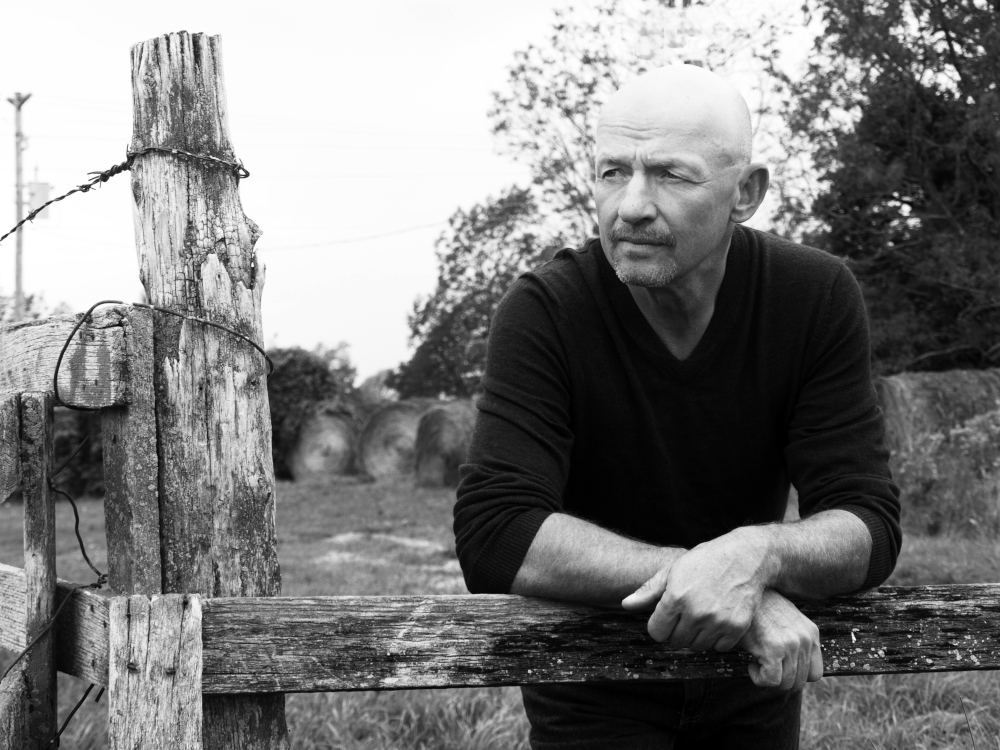
Not necessarily widely known are the original professions of some world famous writers; J.K. Rowling was working as a researcher and bilingual secretary for Amnesty International in 1990 when she conceived the idea for the Harry Potter series (Wikipedia). Antoine de Saint-Exupéry (The little Prince) was a commercial pilot, Rosamunde Pilcher (The Shell Seeker), a secretary. Franz Kafka (The Transformation) was employed at an insurance company. Maxim Gorki (The Mother) worked for the Caucasian Railway workshops, and Jussi Adler-Olsen (Department Q series), as a carpenter. That‘s the same job that Brad Smith still does when he’s not writing. If one reads the CV on his website, it’s obvious that the following saying fits to his career: “Good things take time“.
Brad Smith was born in 1957 and raised in the hamlet of Canfield, in southern Ontario, a couple of hours from Toronto. As a child, he had a Huck Finn existence, building rafts and catching frogs and falling off his bike with regularity. (this was in the pre-helmet days - which might explain a lot, he says now) He grew up on stories - both oral and written - reading the hockey books of Scott Young, and listening to the old-timers in the village. His next door neighbor was a World War I vet who had been a sergeant at Vimy Ridge (France) in 1917. Smith attended elementary school in Cayuga, and high school - somewhat sporadically - in Dunnville.
After high school, he worked for the signal department of the Canadian National Railway for 3 years, and then got a chance to work on a rail project in South Africa. He helped install the signal system there under his uncle - W. R. Smith - a high school drop-out who became one of the three top railway signal engineers in the world. Upon returning from Africa Smith worked all over the place - Alberta, British Columbia, Texas - at a variety of jobs. Farmer, signalman, insulator, truck driver, bartender, schoolteacher (certain lies about his post-secondary education were told to acquire that job), maintenance mechanic, roofer, and so on. He became a carpenter and built custom homes in the Dunnville area.
Smith started writing in his late twenties, in part to see if he could, and for a while it appeared that, as a writer, he was going to make a hell of a roofer. There was a certain amount of partying going on at the time and the result was a lack of the self-discipline required to write. The first effort at a book ended after roughly five pages. A couple of years later though, holed up in the small town of Revelstoke in the Rocky Mountains, he actually finished a novel which is unpublished to this day, and will remain so. The next effort, however, was Rises A Moral Man, published in 1987. Since then Brad Smith has written copious books that received public and critical fame alike.
As different as the topics might be, Smith‘s writing draws on his wellspring of experiences working across Canada, the U.S.A., and Africa at a variety of jobs (atbaypress.com) and covers places where he wants to go. Besides that his novels are very character- and plot-driven. But with decades of experience the author had initially to overcome one hurdle. He revealed while talking to alllitup.ca: “The most challenging thing – I discovered many years ago – is to develop the self-discipline to do it. It’s not like a “regular” job, where you are required to show up and punch a clock every day. With writing, you have to punch your own clock!“
Brad Smith is based in in southern Ontario, living in an old farmhouse near the north shore of Lake Erie.
Interview August 2023
Carpenter & awarded author: "writing a novel is much akin to building a house."
INTUITION/IMAGINATION
?: How does intuition present itself to you – in form of a suspicious impression, a spontaneous visualisation or whatever - maybe in dreams?
More spontaneous, as a rule. But serendipity plays a large role, as well. Not just in the arts, but in life in general.
?: Will any ideas be written down immediately and archived?
I wouldn’t say archived...but written down, for sure. More now than ever. There was a time when I would not forget an idea I had last night. Not anymore!
?: How do you come up with good or extraordinary ideas?
There’s no set way. An idea often appears out of the mist.
?: Do you feel that new creative ideas come as a whole or do you get like a little seed of inspiration that evolves into something else and has to be realized by endless trials and errors in form of constant developments until the final result?
The latter. I’ve written books that I first thought about for years. On the other hand, a couple basically came to me full-formed, beginning, middle and end. But usually the gestation period is longer. It takes time to flesh out certain aspects of a story, and make it work in a manner that doesn’t have the reader rolling their eyes.
?: What if there is a deadline, but no intuition? Does the first fuel the latter maybe?
I’ve been fortunate enough that that has never happened. My schedule is my own.
INSPIRATION
?: What inspires you and how do you stimulate this special form of imaginativeness?
Other stories for the most part. Someone said that Shakespeare wrote about everything there is...so the rest of us are just riffing on themes he explored.
?: How do you filter between ideas that are worthwhile pursuing and bad ones that you just let go of?
Good question! At the end of the day, all you can do is trust your gut.
?: Does an idea need to appeal to you primarily or is its commercial potential an essential factor?
Primarily to me. Always.
?: Do you revisit old ideas or check what colleagues or competitors are up to at times?
Rarely.
CREATIVITY
?: What time or environment best suits your creative work process — for example, a time and place of tranquility or of pressure? Which path do you take from theory or idea to creation?
Early morning...in my home. The path – I just begin to write. First draft, I write 5 pages a day.
?: What’s better in the realization process — for example, speed and forcing creativity by grasping the magic of the moment or a slow, ripening process for implementation and elaboration?
The latter. I’m a carpenter as well, and I’ve always said that writing a novel is much akin to building a house. You do a little bit each day until the job is finished.
?: How important are self-doubt and criticism by others during such a process?
It’s important to be confident in your own abilities. As for criticism from others, it depends on who they are and what they know about what I’m trying to do. I rarely ask for an opinion before I’m finished writing.
?: Is it better to be creative on your own, to trust only your own instincts, or to work in a team?
Writing is a solitary life. You need to trust your own instincts.
?: In case of a creative block or, worse, a real failure, how do you get out of such a hole?
I’ve never been blocked for any length of time, so I guess I’m lucky.
?: Should a creative person always stay true to him- or herself, including taking risks and going against the flow, or must the person, for reasons of commercial survival, make concessions to the demands of the market, the wishes of clients and the audience’s expectations?
The former should be true but isn’t always. There’s a danger in catering to public whim, or markets. You could end up writing something you don’t believe in. It would probably be sub-standard because of that. The equivalent of pounding a square peg into a round hole.
?: How are innovation and improvement possible if you’ve established a distinctive style? Is it good to be ahead of your time, even if you hazard not being understood?
Aha - I might not be ahead of my time at all. I don’t write about dragons or superheroes or the apocalypse! So I guess I’m out of touch in that regard.
?: When does the time come to end the creative process, to be content and set the final result free? Or is it always a work-in-progress, with an endless possibility of improvement?
It’s usually a few years later when I look at something and decide what I would have done differently, not immediately afterward.
?: Do you have a clue why your creations are exactly the way they are?
Nada!
SUCCESS
?: “Success is the ability to go from one failure to another with no loss of enthusiasm.“ Do you agree with Winston Churchill’s quote?
I do. He also said that democracy is the worst form of government...except for all the others. I agree with that too!
?: Should or can you resist the temptation to recycle a ‘formula’ you're successful with?
Depends…IF it’s attached to an original idea, I would say go for it.
?: Is it desirable to create an ultimate or timeless work? Doesn’t “top of the ladder” bring up the question, “What’s next?” — that is, isn’t such a personal peak “the end”?
I’ve never considered that. I think it would take away from the passion for whatever comes next.
MY FAVORITE WORK:
My Spur-winning novel from 2018, THE RETURN OF KID COOPER, is an example of how a rapidly changing world (the book is set in 1910) affects not just those who are changing along with it, but those who won’t – or can’t – do the same. Change is difficult, and even good change is almost always met with resistance.
